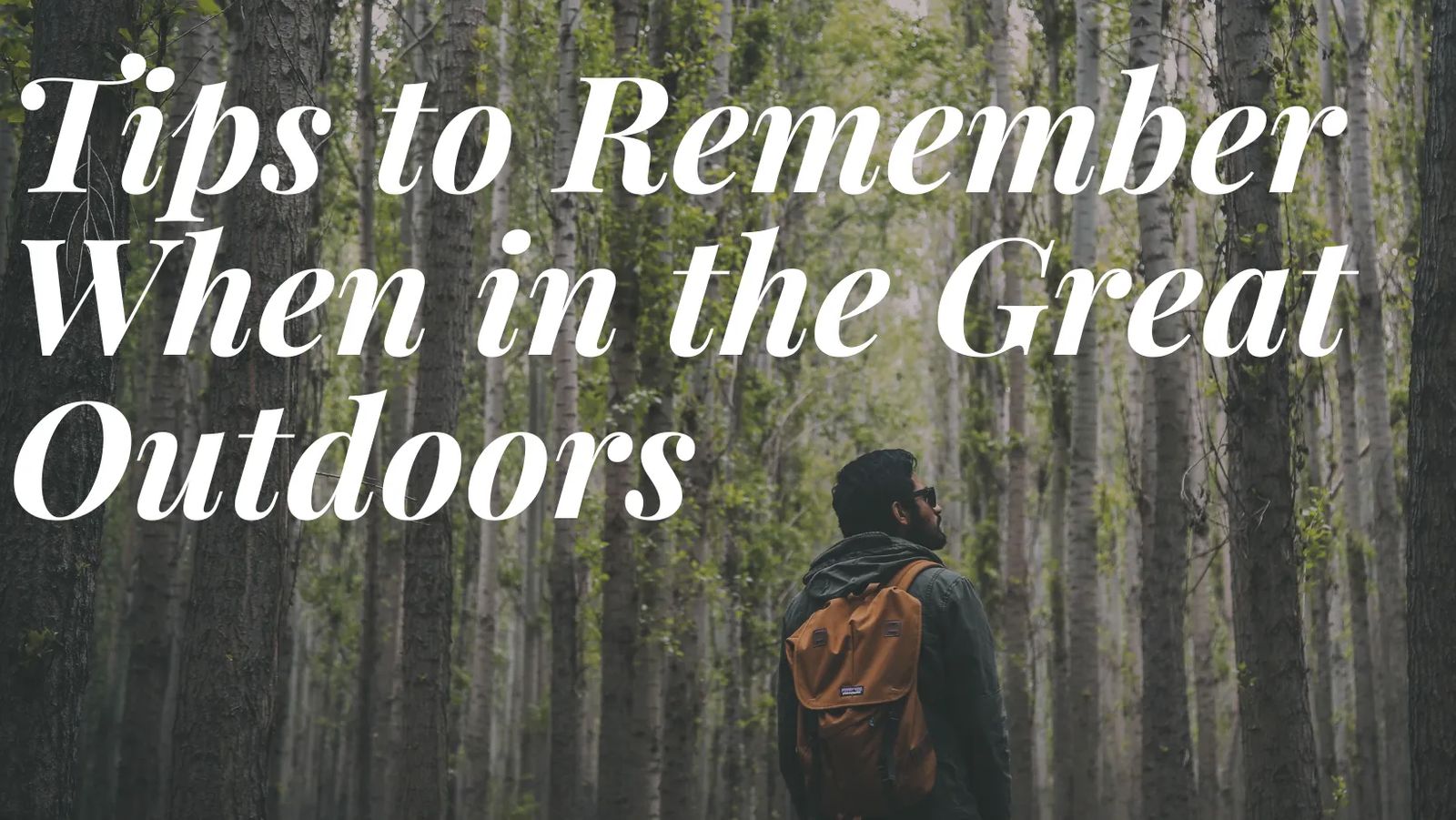
4 Tips to Remember When Staying Outdoors
Outdoor recreation is beneficial to the mind and the body—it provides us with a natural source of vitamin D and an escape from everyday turmoil. However, embarking on an outdoor adventure doesn’t simply involve shortlisting your favorite camping destinations. You need to venture out prepared.
If you’re spending the upcoming holiday outdoors, below are four must-know tips to include in your travel arsenal from our Outdoor Guru Kenneth Reaves!
Research Your Destination
When traveling to unfamiliar territory, ample research can guide your packing decisions and itinerary. Remember, outdoor accommodation exposes you to the elements—extreme humidity, below-freezing temperatures, strong winds, flooding, and more.
Other, more remote areas might be home to dangerous animals such as bears and snakes. If you are a beginning outdoorsman, consider a destination with moderate temperatures and a limited wildlife population.
If booking primary accommodation, such as a hotel or resort, consult with the property staff or a tour guide.
Note surrounding clinics and healthcare centers and means of transportation. Let family members and friends where you are traveling ahead of time in case of an emergency.
Dress Appropriately
Though too often overlooked, dressing appropriately when you travel is critical to your comfort and survival.
For instance, if you are traveling to a hotter location, consider loose-fitting, lighter-colored clothing. Keep in mind that black or grey fabrics absorb heat—hence, the lighter the apparel, the better you will maintain body temperature.
When traveling to a colder location, wear layers of loose clothing to trap heat. Avoid tighter clothing, which restricts blood flow and typically leads to loss of body heat.
Hikers should equip themselves with the appropriate footwear in case of steep inclines or rocky terrain.
If traveling overnight, pack for both morning and evening temperatures. Note the weather in your destination at least a week in advance.
Don’t Travel Alone
Even the most seasoned travelers will benefit from venturing out with a partner. In case of an accident, you’ll have someone to depend on for immediate attention.
When traveling to a remote area, consider traveling in minimum groups of four. Before traveling, leave a copy of your itinerary, emergency contact details, license plate number, and other important information with a family member or close friend.
Finally, consider whether your travel group is in good physical shape. While you need not be an Olympic athlete to take on moderate hiking difficulties, having some background or general training will work to your advantage.
Pack the Essentials
While the key to a successful hike, trek, or climb is packing light, you’ll want to be mindful of what you’re taking with you. Remember, additional changes of clothing and an extra pair of shoes are not essentials.
Instead, you should be packing items such as plenty of food and water, shelter, navigation, and valuable tools. Your first aid kit should at least comprise an antiseptic solution, bandages, and scissors.
If packing additional tools, such as a pier fishing rod, be familiar with your accessories. You never know when you might snag your finger on a hook!
The Bottom Line
Whether you’re taking a day hike or overnight trip in the Rockies, there is no such thing as being too prepared. When shopping for your next best fishing bait or pitch tent, don’t forget to pack the essentials!
More About the Author: Kenneth Reaves is an outdoor guru who loves fishing. He has been exploring nature and having great fishing adventures since he was 5 years old. Currently, he is busy sharing his passion for exciting adventures and fishing to amateur anglers through his blog, Perfect Captain








